While Hollywood might be a cut-throat town when it comes to business, the cinephile community is a pretty tight-knit clique. Need proof? Look no further than the outpouring of love that erupted after the death of Hollywood Book and Poster founder Eric Caidin last month. From the moment his death was announced, until way after his cinematically appropriate memorial at The New Beverly, my Instagram and Twitter feeds were chock-a-block packed with tributes from filmmakers and film fans alike. People I didn't even know knew each other were turning up in each other's photos.
What follows is ideally the first installment in a series exploring the weird and wondrous world of film love in the 21st century. My hope is that by interviewing filmmakers, critics, bloggers, podcasters, programmers, collectors and fanatics we'll be able to approximate some sort of informal oral history of this unique subculture that is able to bring together people from so many different walks of life.
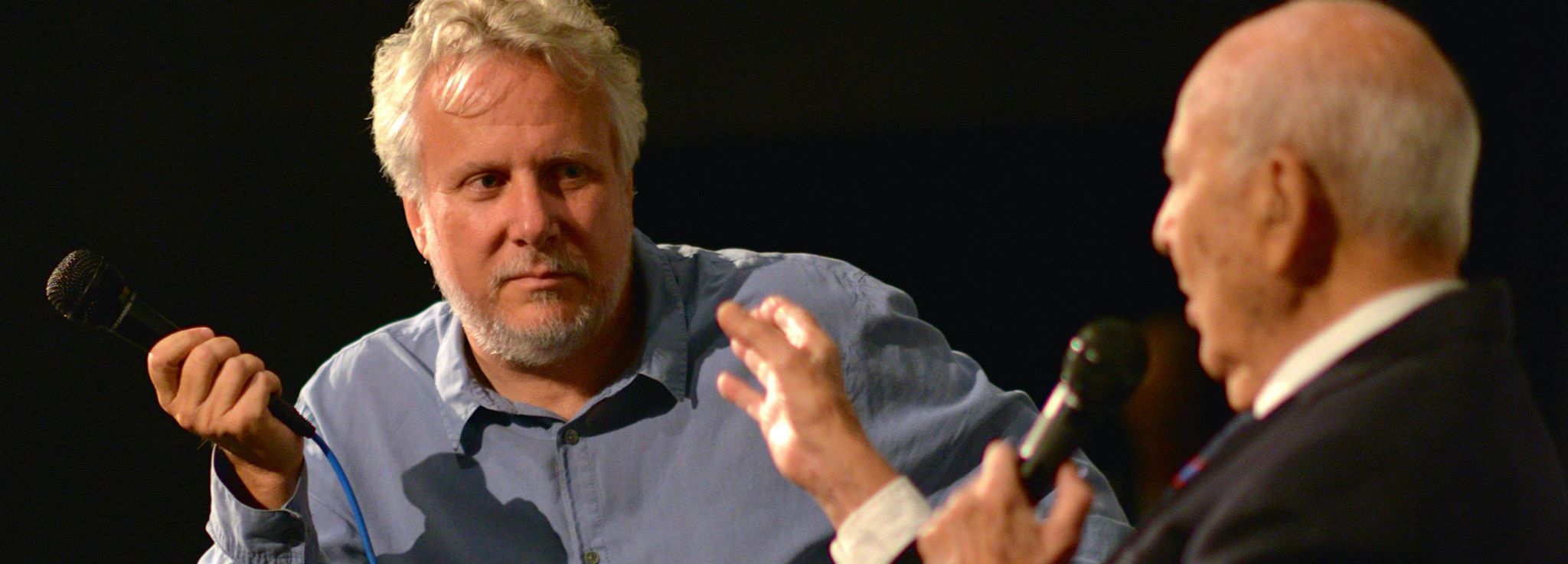 |
| photo by Anthony Pedreira |
Today's subject is Golden Globe winning screenwriter Larry Karaszewski. In addition to authoring screenplays for like Ed Wood, The People vs. Larry Flynt and Big Eyes with his co-writer Scott Alexander, Larry is also a regular contributor to the YouTube series Trailers from Hell where filmmakers provide commentary tracks for some of their favorite film previews. Also, if you live anywhere near Los Angeles, you can often find him moderating a Q&A either before or after a rep screening of something awesome.
This interview was conducted over the phone. Special thanks to Zac Miller for taking the time to transcribe our geekiness.
* * *
CRAIG: You grew up in Indiana, correct?
LARRY: Yes.
C: So what was the name of your local movie house? Do you have any big memories of the first movie you saw in a theater?
L: I'll give you my Indiana story. I fell in love with movies really early on, like when I was 9 or 10. I just became completely obsessed. It also happened to align with my parents getting divorced. My dad had me one night a week, and he didn't really know what to do with kids. I would talk him into taking me to the movies, you know, to the drive-in, to the grindhouse, or whatever.
It was the early '70s, so there was a gigantic array of weird, twisted things. My dad would take me to the drive-in, bring a six-pack of beer, drink it all, fall asleep, and I'd watch, you know, three movies that no parent should ever bring their kids to.
C: 'Cause traditionally the program would be a picture that was already a few months old, followed by an exploitation flick.
L: Yeah, I thought it was totally random, you know? I remember seeing [Gilo] Pontecorvo's Burn! as the first feature at a drive-in. And just like this odd stuff, basically whatever kind of prints they could get for cheap. There would be one movie from a couple years ago, a movie that opened last month, and a cheap movie as a third feature. You just have these weird combinations of The Sterile Cuckoo and The Last House on the Left.
And because it was pre-video, things would come around again. If there was a popular film, or a film somebody had a print of, it would work its way through the system. So A Sterile Cuckoo would play in 1973, even though it came out in 1969, just because it could be thrown in as a second feature somewhere.
I was a bit of a loner, so I'd go to the library, where there was a movie section. I'd check out all the books, including magazines like Weekly Variety. I'd read Weekly Variety because it'd tell me about those movies that were coming up.
I managed to actually get, from my mom and for my 11th birthday, a subscription to Weekly Variety. So I was an 11-year old kid in Indiana who had his own subscription to Weekly Variety.
C: Would that be around the time you became aware that films were a thing people actually made? That they weren't just something that occurred?
L: I always knew that a little bit. I had a Super-8 camera really early on when I was young. But I would say that, [as a kid], when you go to these movies, you're going for the star. You know there's a director, you know there's a writer, but that's sort of secondary. But in the early '70s, directors were stars. The movie that I think I made that real connection to was The Conversation, which I guess came out in '74, early '74, so I'd have been like 12 or 13.
I think it was the first time I saw an actual movie where [I knew] that there was a mind behind it. That there really was somebody who put thought into crafting the images, [performances], and sounds. That year also had Chinatown and The Godfather: Part II. I was actually coming of age in a time where you could go to the movies and see what a director was doing, and that would have been my breakthrough.
C: You mentioned Weekly Variety. Were you part of the gang that would read, like Famous Monsters [of Filmland], or did you gravitate toward [Kenneth Anger's] Hollywood Babylon?
L: Hollywood Babylon came along later in a very big way. Like, that would be more of a high school thing, along with, you know, Danny Peary's Cult Movies. Certainly, Pauline Kael was a gigantic influence. South Bend is stone's throw from Chicago, and Roger Ebert was a [tremendous] force there.
Siskel and Ebert were so big that when you saw a movie in Chicago, there'd just be the title on the marquee, the actor's name, and: "Siskel: Three and a Half Stars". It was a time where critics mattered, as the curators. So I became very aware of critics and started reading them. I actually met Ebert when I was like 13 or 14, he came to South Bend and we had a discussion about Hour of the Wolf.
C: Wow, Bergman.
L: They hit television, public TV in Chicago, way before they went national, so I was very much aware of them as personalities. There was also a television show on PBS called The Men Who Made the Movies, which was a documentary series that profiled a number of older directors.
C: Richard Schickel, right?
L: I believe that was Schickel. Also, Ebert would actually host a PBS show in Chicago that would just show foreign films. Bergman, you know? I remember seeing The Silence when I was really young, because Ebert would show it and would introduce it, like Robert Osborne [does].
The thing with Monsters — it was more my friends who were into Famous Monsters. I might have spent a little time [on them], but I was never obsessive about that the way some people were. But I definitely went through a period. These were the Vincent Price Scream and Scream Again years, with that strong, Hammer, Famous Monsters influence. MAD Magazine was a gigantic thing for me. I'd sometimes read the parody before I saw the film.
C: Yeah, "Nutwork" before Network?
L: Exactly.
C: [Laughs] So you ended up going to film school at USC, correct?
L: Yes.
C: Was that your first time ever coming to LA, or had you been out to the coast before?
L: I'd been out to LA once before. I was very lucky to be a part of a local comedy television show called Beyond Our Control, which was a weekly half-hour SNL, Second City type of thing, but actually started before either one of those shows did. A group of us came out to LA to check it [the city] out.
That show was very influential. It put me with a [like-minded group], and a bunch of really talented people came out of it. There was me me, Daniel Waters who wrote Heathers, Dean Norris from Breaking Bad, the woman who invented Blue's Clues, Dave Simkins who wrote Adventures in Babysitting, Chris Webb who wrote Toy Story 2.
So there's a bunch of people who just formed really young in South Bend. There was a community of filmmakers there. My family didn't go to college. My dad worked at a factory, my mom was a waitress. So it wasn't a natural thing for me to go to college, but I knew what I wanted to do. And so I took a year off, a gap year, but back in my day it was called "not going to college". I was toying with the idea of either auditioning for Second City, or coming to USC, and I came out to USC.
C: And when you got here?
L: [I grew] up in a small town, and read my whole life about all the things that were happening in big cities. When I got here, I really took advantage of being in Los Angeles. Going to films, going to concerts, going to theater, and just loving every minute. At that point, there was just an incredible, thriving repertory theater thing happening, where you had five theaters, maybe even more, where every night was a different double-bill of eclectic films. There was a ton of theaters. On Sunset alone they had two or three.
C: When I go to a screening now, I'll see you, or Allison [Anders], or various other industry people. Was there a cinephile community at the time? You were in film school, but were there established people that you'd encounter at these screenings?
L: I'm sure there were. I was more encountering my film school peers. So not really the community at the time. I was too far out of it, and more into my own little group of people. I actually think the movie nerd community that exists now is—well, a lot of it is social media. You know these people, you know their opinion a little bit, and there's a lot of shaking of hands in the lobbies and discussing [the business]. You look and see, "Oh, that person is going to that thing? Oh I should see that!" And I think a lot of that comes from [social media]. I probably would not have known Peter Avellino or Matthew David Wilder, or these kinds of guys if it weren't for social media, because they are opinionated [film buffs]. When they see something, or recommend something, my ears perk up a little bit.
C: They help curate.
L: Yeah.
C: Do any particular screenings from your early years stick out? Like a great double-bill?
L: I was really into the Marx Brothers, and at any given time you could see Horse Feathers or Monkey Business on a double bill. In South Bend, there weren't necessarily art theaters, but at that point, Lina Wertmüller movies were actually showing in regular theaters. Notre Dame's there, and there was a cinema club in Notre Dame that might run a Fassbinder film, or that kind of thing. So that's where I'd get my taste of arthouse cinema.
C: At what point did you start moderating Q&As? Was it by the time of Ed Wood, or was it back during the Problem Child days?
L: Once again, I'd blame it on social media. I studied at USC for film history and criticism. I worked as a film critic for a little while back in Indiana, on the NBC affiliate there. I always had an interest in that kind of thing. It was in the early days of Facebook that the Moninger brothers — Grant Moninger is one of the programmers at American Cinematheque — and his brother Dave, were following me. I was following their posts, too.
I started doing Trailers from Hell, which is filmmakers talking about films [as commentary tracks over the trailers]. It's what gave me that critic form again, where I could talk about older films and weird movies that I liked. I think they saw a couple of those, and knew I had a fondness for Don Knotts, and they thought: "If we show a Don Knotts film, [we're] not sure anyone would come, but if Larry hosted it, we could get people to come." So I hosted that, and the first time I did it, I put out press feelers.
Actually, I created a bit of a scene for a Don Knotts double bill, The Love God and The Ghost and Mr. Chicken. I got bunch of comics to talk about the influence of Don, some people who worked with Don, and it was a big messy panel. But it was fun.
[Since then], whenever I had an idea, or they had an idea, they'd call me up and say: "We think we can get Buck Henry. Do you want to show Taking Off?" And I'd be: "Yes!" They know my tastes, so I can show Diary of a Mad Housewife, or Richard Benjamin. It just started happening, and once it started happening it created its own sense of momentum.
There began again, which I hadn't seen since the early '80s, a renaissance of revival cinema in Los Angeles where you had the Cinematheque, both the Aero and the Egyptian coming back strong. They'd have Q&As with filmmakers every single night. Then you had Hadrian Belove of Cinefamily, which created a much younger, hipper kind of [venue], attracting women to revival cinema and doing a very eclectic mix. I think they're doing an amazing job there. I was actually on the board of directors for the Cinefamily. Now I'm on the board of advisors. So I'm very much involved with them.
Then you have Quentin taking over the New Beverly, and really running that as a collection of films that he loves. It's very, very vibrant, we even have Elvis Mitchell over at the museum [LACMA]. I threw myself into this because there was a very brief period where funding collapsed for revival screenings at LACMA. There was no support for this kind of cinema in LA, and I knew that was bullshit. Quentin is an amazing guy, he has amazing taste, but I felt like there was nobody of our generation who was jumping up to be the Peter Bogdanovich, the guy who talks about movies, who knows about movies and interviews filmmakers, and things like that. I decided to fill that role.
C: Before you do any of these Q&As, do you dive in and do a little research, or do you call on knowledge you already have?
L: It's a combination of both. I find, because you have a certain amount of knowledge, you know where to get the research. I rarely do somebody randomly. Sometimes it'll happen, someone will ask me to fill in. But like a good lawyer, you rarely ask a question you don't know the answer to.
C: Do you hit up a lot of libraries?
L: It's the Internet. The Internet knows all, right now. I've got shitloads of movie books. Because I am a filmmaker, if I'm talking to a writer or a director, I can talk more intimately about the process. You get people that you have a certain familiarity with. I'm friends with Mel Brooks, I've done Mel Brooks a bunch of times, so I know what the good stories are. When I did Buck Henry, we talked about working with Milos Foreman. I try not to throw myself into [the interview]—there's nothing worse than a moderator who talks about themselves, so I don't do that, I try to be invisible. Having someone up there who is knowledgeable, and knows how to shape a conversation, knows how to lead it in the right way, is very important.
C: Do you think the fact that you're in the industry also makes you privy to some of the legends? Like "Oh, this is a story that I've heard," or some of the unsubstantiated but good stories?
L: I don't know about that. A lot of the stories are out there. I think being in the industry and being who I am, it [makes] me privy to people being a little more honest when they give the answer. It becomes like an actual conversation as opposed to something like: "How was it working in that movie?" "We had a lot of fun in that movie!" That's not an actual Q&A.
C: But not so much within the Q&A, but working around town you've heard stories, and you can call upon those when you're doing the interview.
L: Yes. The innate knowledge of being a filmmaker and being a working person in the town. That can make you a better moderator.
C: Who are some people that you would kill to interview?
L: Hmm, that's a great question. I recently did one that was always on my wish list. That was Ralph Bakshi. I always thought that would be a hoot. He's a toughie, but I'm a big fan, so that [was] good. It's all eclectic. I'd prefer to talk to filmmakers, because filmmakers can give you the origin story.
Actors are great, actors can be fantastic. But a lot of times, they're just cast in a movie. They're used to doing press, so you can't really talk about the ins and outs of film. They give you more [in the way of] set stories. You're not really discussing the texts. Now, that can sometimes be totally changed, and when you get somebody — I don't mean to mention the same people over and over again — like Richard Benjamin or Buck Henry, who are both actors and filmmakers, you can cover all sides of the table.
C: I've noticed that, with your Trailers from Hell, you'll cover a masterpiece, and then you'll also cover something like Myra Breckinridge, or Skidoo, which are considered failures. You address that fact, and you refer to them as such, but you still seem to get something out of them. What is it that can make a flop just as intriguing as a success?
L: Because [they're not just] flops. Those two movies you mentioned are singular, "I can't believe what I'm watching," kinds of things. After all, if you are talking to my partner Scott Alexander, we wrote Ed Wood. So obviously, we have a great deal of affection toward the fringe elements. I'm really attracted to movies that are kind of out of their minds. And sometimes that creates masterpieces, and sometimes that creates complete messes. With Trailers from Hell, a complete mess can be a whole lot of fun to talk about. Sometimes a complete mess is much more fun to talk about than it is to watch.
C: I still haven't seen Myra Breckinridge or Skidoo, and I'm all like: "He makes them sound really interesting, but…"
L: Yeah, both those movies are tough going. I'm very interested in the intersection of Old Hollywood and New Hollywood. It's all "Old Hollywood" now, but I'm talking more like the late '60s, when older established filmmakers tried to be hip. I have a personal weakness for that. A friend of mine calls it the "Bob Hope in a Beatle Wig Syndrome".
C: Sock it to me?
L: Sock it to me [Laughs], exactly.
C: Have you listened at all to Karina Longworth's You Must Remember This podcast? Right now she's doing, "The Manson '60s".
L: Oh, I downloaded it, I put it on CD, I put it in my car but I have not listened to it yet. I hear it's fun.
C: Yeah, it's good stuff so far. Let's see, I'm wrapping up here. As a last one: What films have you not seen projected that you would really like to see in a theater? Like, are there any white whales out there?
L: The white whale for everyone is The Day the Clown Cried.
C: Just gotta break into Jerry's house.

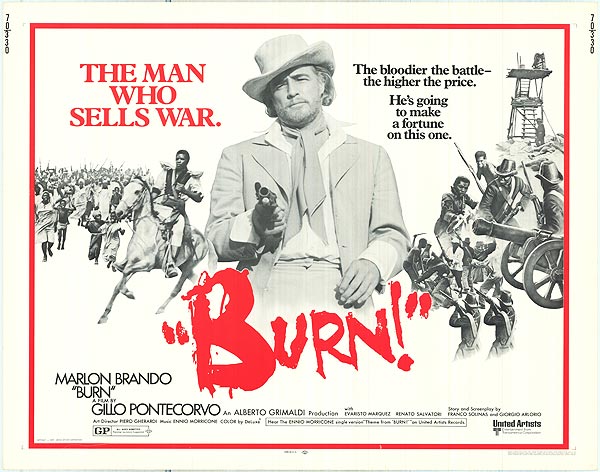
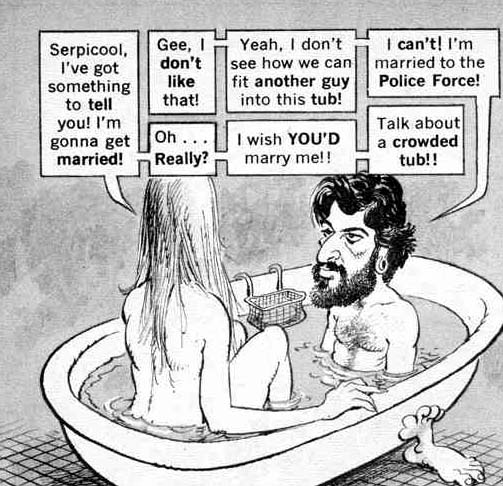

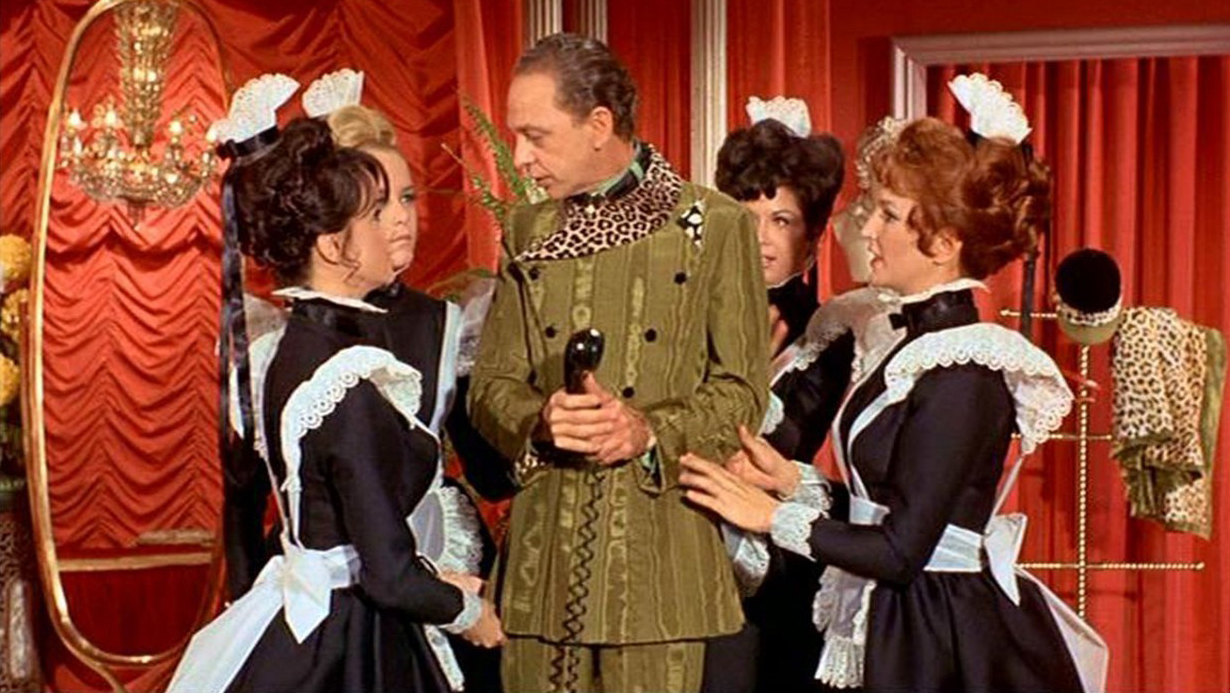
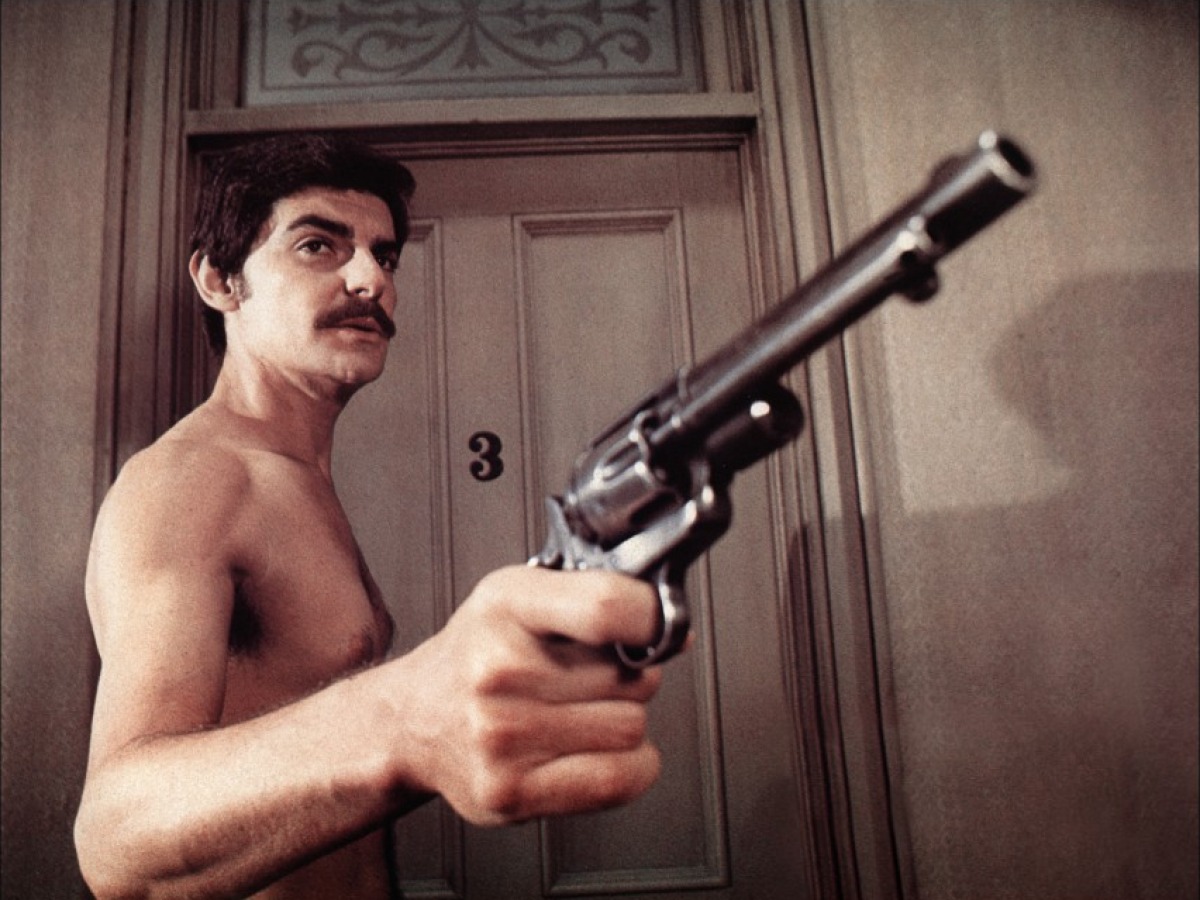
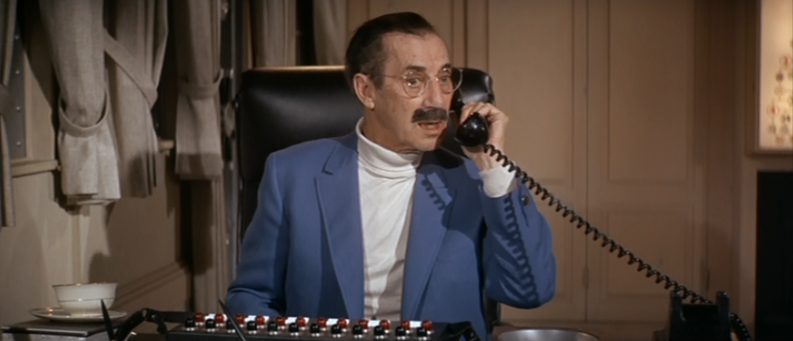
No comments:
Post a Comment